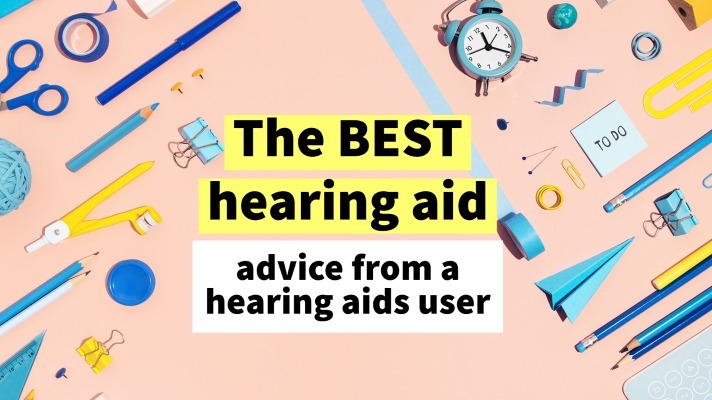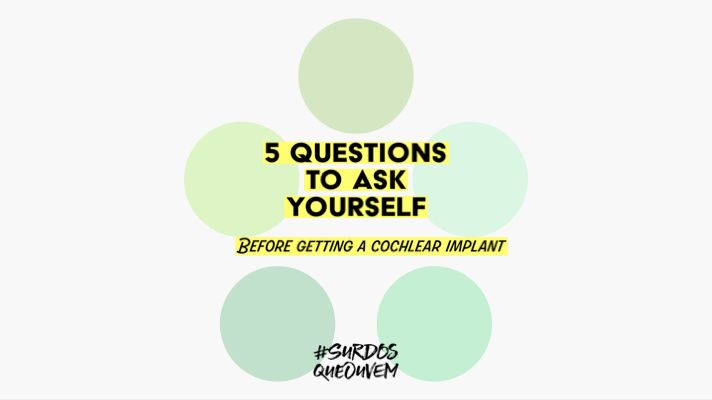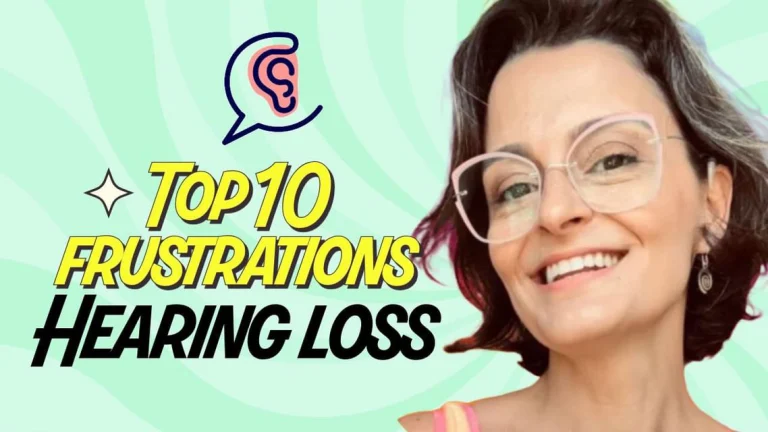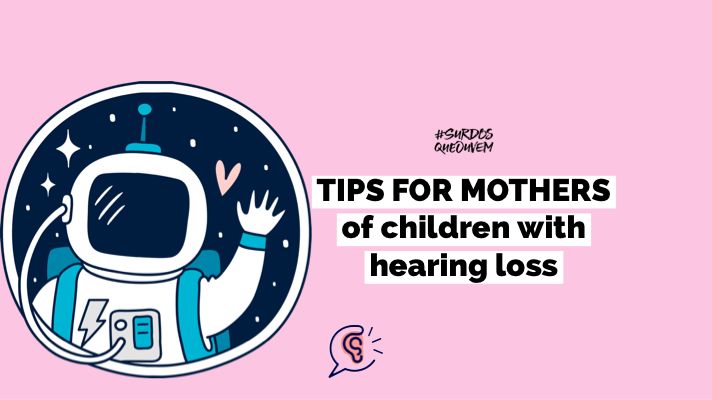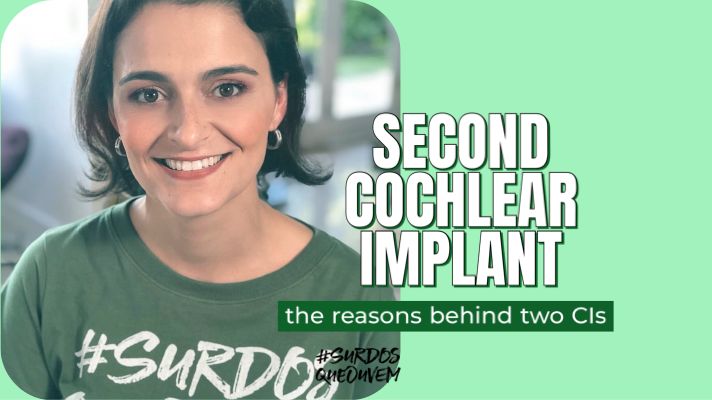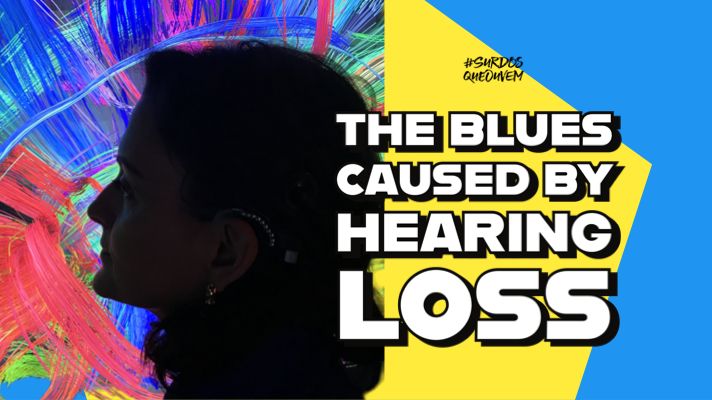The BEST HEARING AID: top Advices a HEARING AIDS USER
It is difficult to determine a single “best” hearing aid, as the ideal hearing aid for an individual will depend on their specific hearing needs, preferences, and budget. You’ll find a lot of hearing aids sellers and audiologists posts about it but, as a person who has used hearing aids for many years before getting cochlear implants, I should warn you that are some common mistakes you’ll probably make if you’re new to this field. That’s why I strongly recommend that you find an online community of people with hearing loss BEFORE buying your first pair of hearing aids.
Some factors to consider when choosing a hearing aid include:
- Type of hearing loss: Different types of hearing aids are designed to address different types of hearing loss, such as sensorineural, conductive, or mixed. It is important to have a professional evaluation to determine the type and severity of your hearing loss, so you can choose a hearing aid that is appropriate for your needs.
- Style: Hearing aids come in a variety of styles, including in-the-ear (ITE), behind-the-ear (BTE), in-the-canal (ITC), and completely-in-the-canal (CIC). The style that is best for you will depend on your personal preference, as well as the severity of your hearing loss and the size and shape of your ear.
- Features: Different hearing aids have different features, such as Bluetooth connectivity, noise reduction, and directional microphones. Consider which features are most important to you and look for a hearing aid that offers them.
- Price: Hearing aids can vary widely in price, depending on the type, style, and features. Consider your budget when choosing a hearing aid, but also keep in mind that investing in a high-quality hearing aid can improve your quality of life and may be worth the extra cost.
An audiologist can help you determine the best hearing aid for your specific needs and budget, and provide guidance on the various options available. The best advice I can give if you are looking for a hearing aids for the very first time is to talk to other hearing aids users. They know every single detail about it and can help you avoid common mistakes people do when they are newbies to this issue. If you speak portuguese, become a member of Clube dos Surdos Que Ouvem to discuss with more than 20.000 hearing aids users.
Are you ashamed of wearing hearing aids?
First and foremost, you should take some time to read about ableism. I’m sure you’ll understand why you have no reason to feel ashamed of wearing a hearing aid. Read about the social and emotional impacts of hearing loss, too.
It is not uncommon for people to feel self-conscious or ashamed about wearing hearing aids, especially if they are worried about how others may perceive them. However, it is important to remember that hearing aids are a common and effective solution for hearing loss, and that wearing them can have numerous benefits. Here are a few tips for dealing with the shame of wearing hearing aids:
- Educate yourself: Understanding the science behind hearing loss and hearing aids can help you feel more confident about your decision to use them.
-
Talk to others: Connecting with others who wear hearing aids can help you feel less alone and provide support and encouragement. In Brazil, we have Clube dos Surdos Que Ouvem, the largest online community of people with hearing loss who are hearing aids and cochlear implant users.
- Reframe your thinking: Try to view wearing hearing aids as a positive step towards improving your communication and quality of life, rather than a negative or embarrassing experience.
- Be open and honest: If you feel comfortable doing so, you can be open and honest with others about your hearing loss and your decision to use hearing aids. This can help reduce the stigma surrounding hearing aids and encourage others to seek treatment if they need it.
Ultimately, it is important to prioritize your own health and well-being and to do what is best for you. Wearing hearing aids can be an important step towards improving your communication and quality of life, and it is nothing to be ashamed of.
Pros of hearing aids:
- Improved communication: Hearing aids can improve your ability to hear and understand conversations, which can improve your social interactions and overall quality of life.
- Increased safety: Hearing aids can help you hear important sounds, such as alarms and sirens, which can improve your safety in certain situations.
- Improved mental health: Untreated hearing loss has been linked to a higher risk of depression, anxiety, and cognitive decline. Using hearing aids can help alleviate these risks and improve your overall mental health.
- Greater independence: Hearing aids can help you better understand and interact with your environment, which can increase your independence and autonomy.
Cons of hearing aids:
- Cost: Hearing aids can be expensive, and not all insurance plans cover them.
- Maintenance: Hearing aids require regular maintenance and may need to be replaced every few years.
- Comfort: Some people may find hearing aids uncomfortable to wear, especially if they have a behind-the-ear (BTE) style.
- Limited effectiveness: Hearing aids are not be able to fully restore normal hearing, and may not work well in very loud environments or for very high or very low frequencies.
- Potential for feedback: Some hearing aids may produce feedback (a whistling sound) when they are not fit properly or when certain conditions are present.
It is important to consult with a hearing healthcare professional to determine what’s the best hearing aid for your type of hearing loss and your lifestyle.
Famous people who wear a hearing aid
There are many famous people who have worn or currently wear hearing aids, including:
- Millie Bobby Brown: she has single sided hearing loss and talks openly about it.
- Whoopi Goldberg: The actress and comedian has spoken openly about her hearing loss and her decision to use hearing aids.
- Halle Berry: The actress has worn hearing aids since she was a child and has been open about her experiences with hearing loss.
- Gene Simmons: The musician and co-founder of the rock band Kiss has worn hearing aids for many years.
- Neil Young: The musician has spoken openly about his hearing loss and his decision to use hearing aids.
- Bill Clinton: The former President of the United States has worn hearing aids for many years.
- Tony Bennett: The musician and singer has worn hearing aids for many years and has advocated for hearing health awareness.
- Barbara Mandrell: The country singer and musician has worn hearing aids for many years.
- Chuck Yeager: The former military pilot and astronaut has worn hearing aids for many years.
- Pete Townshend: The musician and co-founder of the rock band The Who has worn hearing aids for many years.
These are just a few examples of famous people who have worn or currently wear hearing aids. Wearing hearing aids is a common and effective solution for hearing loss, and it is nothing to be ashamed of.
Advice for people with hearing loss
If you have hearing loss, there are several steps you can take to manage your condition and improve your communication and your quality of life:
- Find a community of people with hearing loss: If you are struggling with hearing loss, it can be helpful to connect with others who are in a similar situation to share experiences, fears, tears and get some emotional support from people who know exactly how you feel.
-
Get a professional evaluation: It is important to have your hearing tested by a professional to determine the type and severity of your hearing loss. This will help you choose the best treatment options. Start with an ENT doctor.
- Consider using hearing aids: Hearing aids can be an effective solution for many types of hearing loss. They can help you hear and understand conversations, as well as improve your safety in certain situations. In addition to hearing aids, there are other assistive devices that can help you communicate, such as telephone amplifiers, television listening systems, and closed captioning.
- Self advocacy: If you have hearing loss, it is important to let others know and to communicate your needs. You can also use strategies such as lip reading, writing, and gesturing to improve your communication.
- Protect your hearing health: Protect your hearing from further damage by avoiding loud noises, using earplugs or earmuffs in loud environments, and getting regular hearing evaluations.
It is important to remember that hearing loss is a common and manageable condition, and that there are many resources and technologies available to help you communicate and improve your quality of life.

